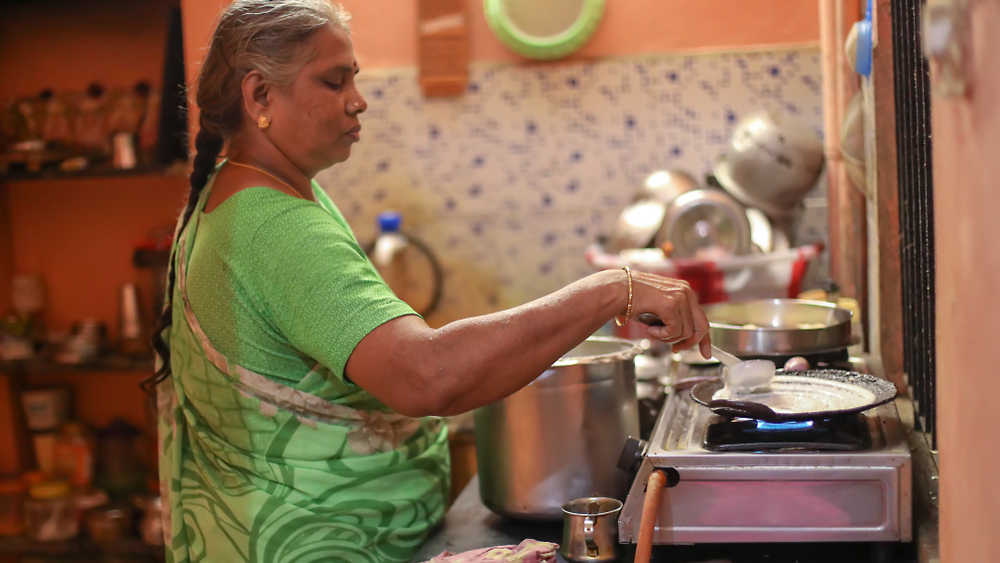
True Value: remuneration for household work- Doing housework is not a choice for every woman
It would be derogatory to affix a monetary amount to the labour, services and sacrifices of homemakers

Doing housework is not a choice for every woman. Given that women are conditioned from a tender age to live a life of servitude, performing household labour has been accepted by many women without much protest. In a recent motor vehicle compensation case, the Supreme Court observed, “...the sheer amount of time and effort... dedicated to household work by individuals, who are more likely to be women than men, is not surprising when one considers the plethora of activities a housemaker undertakes”. The court further stated that “the issue of fixing notional income for a homemaker, therefore, serves extremely important functions... [i]t is a recognition of the multitude of women who are engaged in this activity, whether by choice or as a result of social/cultural norms”. It is time we acknowledged that women’s work at home contributes to the economic growth of the family and the nation at large. According to the United Nations, homemakers contribute 13 per cent to the global gross domestic product.
It would thus be derogatory to affix a monetary amount to the labour, services and sacrifices of homemakers. But at the same time, the romanticization of the burden that is put on the woman to demonstrate her love must stop. In a deeply patriarchal society, generations of women have had their own battles to fight. Pioneering women in the 1950s broke the glass ceiling to a great extent to pursue careers; the next generation established themselves as the second bread earners in their families; now it is the turn of the present generation of women to provide for themselves and demand an unemployment allowance if, owing to circumstances, they need to stay at home. The compensation is not for the ‘love’ that is often attributed to women; it is for the full-time work they do at home, which is often done for many compulsions other than love.
In our society, homemaking is still considered the centre of a woman’s life. The female labour force participation rates in India have never crossed 35 per cent after Independence, and women have mostly been confined to housework. According to the ministry of statistics and programme implementation, women spend 299 minutes a day on housework, whereas men spend just 97 minutes. It becomes clear that women in India are still rarely encouraged to pursue education or career growth. As such, implementing a policy to compensate only women for housework will do more harm than good. It will strengthen the stereotype of the kind of work that women are suited for, and will confine more women to the home. The choice to build a career will get restricted further, resulting in a decline in the number of women in the nation’s workforce.
The fight against patriarchy cannot be won unless women are financially independent or, at least, not dependent on the goodness of men. However, the decline of women in the labour force from 31.2 per cent in 2011-12 to 23.3 per cent in 2017-18 cannot be ignored. Adopting the compensation policy will only further this downward trend and ensure that the sacrifices made by our predecessors for the inclusion of women in the workforce go in vain.
The belief that women who stay at home do not ‘work’ or add economic value to the household is worrisome. The proposal to pay housewives is a heartening reflection of changing attitudes. But we need to recognize that domestic work holds value, and ensure social equality and dignity of life for women. The essentialist principle of women just being mothers and wives is the root cause of their deprivation. It is time to come out of it.

0 Response to "True Value: remuneration for household work- Doing housework is not a choice for every woman"
Post a Comment
Disclaimer Note:
The views expressed in the articles published here are solely those of the author and do not necessarily reflect the official policy, position, or perspective of Kalimpong News or KalimNews. Kalimpong News and KalimNews disclaim all liability for the published or posted articles, news, and information and assume no responsibility for the accuracy or validity of the content.
Kalimpong News is a non-profit online news platform managed by KalimNews and operated under the Kalimpong Press Club.
Comment Policy:
We encourage respectful and constructive discussions. Please ensure decency while commenting and register with your email ID to participate.
Note: only a member of this blog may post a comment.